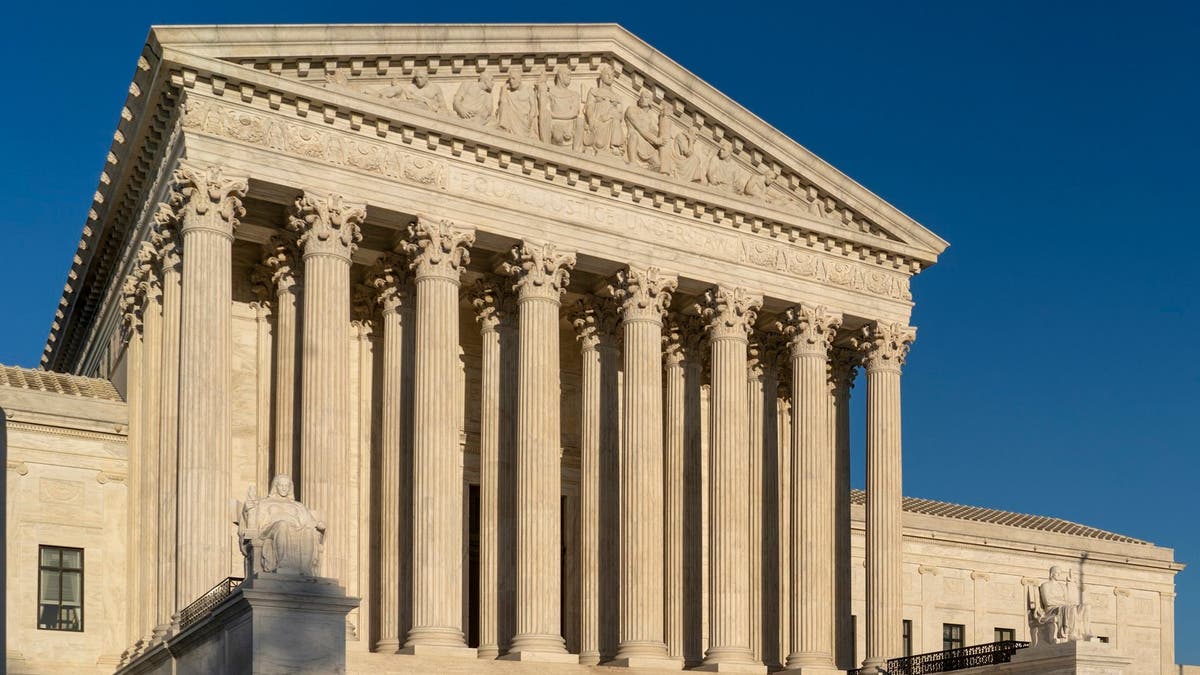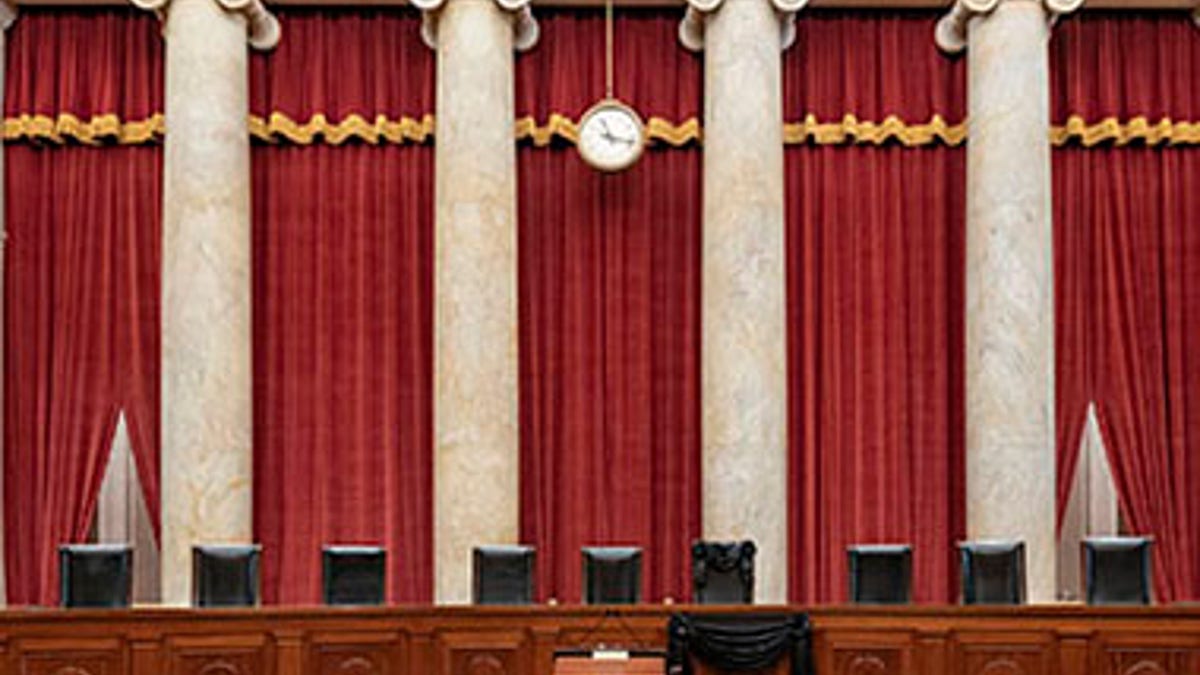Fox News Flash top headlines for March 3
Fox News Flash top headlines are here. Check out what's clicking on Foxnews.com.
The question of what circumstances allow police or law enforcement officers to enter a suspect’s home without a warrant has been the topic of recent discussion at the U.S. Supreme Court, where justices last month seemed inclined to expand such circumstances in the event of a "hot pursuit."
The court has previously said that an officer in "hot pursuit" of a suspect believed to have committed a felony crime can enter the person’s home without a warrant if the person goes inside.
Then, at the end of February, justices were debating whether the same is true if the officer is pursuing the person over a misdemeanor.
SUPREME COURT BLOCKS A CALIFORNIA BAN ON INDOOR CHURCH SERVICES
The Supreme Court arguments on Feb. 24 centered on whether a police pursuit of someone whom officers have probable cause to believe has committed a misdemeanor crime qualifies as a sufficient enough reason for officers to enter the home without a warrant.

FILE - In this April 20, 2018, file photo, the Supreme Court is seen in Washington. (AP Photo/J. Scott Applewhite, File) (The Associated Press. All rights reserved.)
According to a Reuters report, a ruling in favor of warrantless entry following a pursuit – regardless of the scope of the alleged crime – seems unlikely.
The case before the justices involves California retiree Arthur Lange. One evening in 2016, an officer said he saw Lange driving his station wagon in Sonoma County, playing music loudly and allegedly honking his horn several times. The officer believed those were noise violations punishable by small fines and followed Lange. The officer later turned on his car's lights to get Lange to stop. But Lange continued driving for about four seconds, turned into his driveway and entered his garage without stopping, according to reports at the time.
The officer got out of his car and, as Lange's garage door was closing, stuck his foot under the door so it would re-open. The officer then confronted Lange, who allegedly said he hadn't seen the officer. Lange was ultimately arrested after the officer smelled alcohol on his breath, and he was charged with driving under the influence as well as an excessive noise offense.
SUPREME COURT HEARS ARIZONA VOTING RIGHTS CASES AS FAR LEFT COMPARES JUSTICES TO SEGREGATIONISTS
Lange argued that the officer's entry into the garage without a warrant violated his Fourth Amendment right to be free of "unreasonable searches and seizures."
But, as Justice Stephen Breyer said during the Feb. 24 arguments, there is "a bright-line rule that says hot pursuit is automatically exigent circumstances," meaning circumstances that are exceptions to the typical warrant requirements until the Fourth Amendment.
The case is important both to law enforcement and to groups concerned about privacy.
Several justices, both liberal and conservative, suggested that making a distinction between felony and misdemeanor cases would be difficult and problematic.

The Courtroom of the Supreme Court showing Associate Justice Ruth Bader Ginsburg’s Bench Chair and the Bench in front of her seat draped in black following her death on September 18th, 2020. Credit: Photograph by Fred Schilling, Collection of the Supreme Court of the United States.
"The problem with trying to separate misdemeanor and felony is that different states have different rules and different crimes that count as misdemeanors," Breyer said during arguments the justices heard by phone because of the coronavirus pandemic.
Chief Justice John Roberts, meanwhile, described the "line between felonies and misdemeanors" as "very hard to draw."
Lange’s lawyer, Jeffrey Fisher, told the justices that it is "not too much to ask for officers to procure a warrant before breaching the Fourth Amendment's most sacrosanct space."
But Roberts said doing so would "really put the police in a dangerous situation," such as by providing suspects the opportunity "to destroy evidence," "arm himself, [or] call confederates" to come.
Erica Ross, arguing on behalf of the Biden administration, urged the court to side with officers, arguing that a "suspect's decision to bring a public encounter to the home diminishes any privacy interests he may have there."
CLICK HERE TO GET THE FOX NEWS APP
Justice Samuel Alito suggested that perhaps the line the court should draw is that officers don't need a warrant if they are truly in "hot pursuit" of a suspect, regardless of whether it is for a felony or misdemeanor. "The argument very simply is that hot pursuit has to be hot and it has to be a pursuit ... it has to involve a chase," he suggested. "The arrestee must actually be trying to flee and avoid arrest."
Lange's case wouldn't count, he suggested. "I see no attempt to avoid arrest. I see somebody who ... may well have not have even noticed these lights and simply proceeded into his own garage," Alito said.
A decision in the case is expected by the end of June.
Fox News’ Shannon Bream and Bill Mears contributed to this report, as well as the Associated Press.



